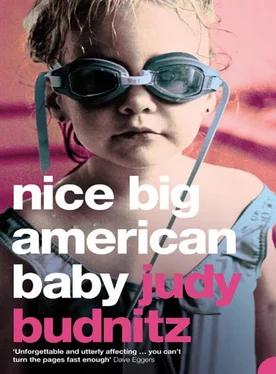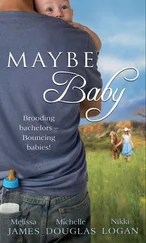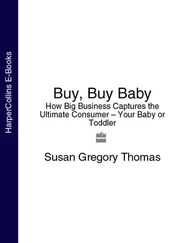The daughter cowered under the assault, after the years in her brothers’ shadows. She had been accustomed to being invisible. Her mother’s attention now seemed like a burden; she missed the airy feeling of being disposable, inconsequential.
The woman did not speak of her sons at home. To the others in the village she bemoaned her losses. But you are lucky, people said. You still have a child. Still alive. Many of us have none left. You are one of the lucky ones.
Yes, she said, I suppose I am.
The woman who had never been afraid now began to fear that her one last child would be taken from her. She tried to hide her daughter, disguise her value, shield her from anyone who might take her away.
She stopped calling her daughter by her name and instead used “Sister.”
Precious did not mind. Her mother seemed determined to name her exactly what she was not.
The woman closed her doors and kept her happiness close and hidden, a miser with her hoard.
The soldier appeared at the door, and before Precious could say a word he cried out how he’d missed her and hugged her to him. He smelled like a week’s worth of sweat, and when he smiled his cheeks stretched into taut creases that looked like they might split at any moment. Don’t you remember me? he said. Of course she didn’t. She’d never seen him before.
He did the same to her mother, embracing her before she could resist. Precious saw her mother’s face, propped on the man’s shoulder, the eyes closed, and for just a moment her mother looked blissful. Then the eyes opened and her mother’s face hardened again.
It’s good to be home, he said.
He’s lying, Precious said sullenly.
Her mother knew it too. And yet she cooked him a meal and allowed him to stay the night. She kept closing her eyes for a few seconds at a time; Precious knew she was imagining that it was true, that one of her sons really had come home.
In the dark of early morning Precious heard a creak and felt a breath on her shoulder. A finger found its way beneath her blanket, it pointed and beckoned. She turned over. And then everything happened fast, before she could say a word, like a gourd cracked open and the pulp scooped out, to be replaced by something else.
In the morning the woman arose to find her imposter son gone and her daughter too. One of them had taken all the money she had.
This is the story the daughter tells to her unseen audience, the listener swaying in a travel hammock made of her own flesh. She tells the story over and over, the rhythm of her voice matching the rocking rhythm of her legs, hoping he will understand.
“If you’re an illegal,” the man says, “the only absolutely surefire way to get into America is to stow away inside a woman’s belly.”
She asks him what he means. He tells her that anyone born on American soil is automatically a citizen. “Doesn’t matter who or what the parents are.”
“But what happens to the baby’s mother? She’s the mother of a citizen now.”
“Doesn’t matter,” he says. “Anyone without papers, if they catch you they’ll deport you. And they will catch you. Probably take your baby away.”
Her hands slide down the front of her dress.
He narrows his eyes. “You seem determined.” She nods. “Do you know how to swim? Ever been chased by dogs? Can you run fast on those pretty legs?” She nods; she has never done the first two, but surely they are instinctive. Surely, under duress, her body will know what to do.
“Will you still be able to run fast in a month? Two?” he says and with a sudden brisk movement cups his hand against her stomach.
“Yes,” she says, trying not to flinch.
“I might just be able to help you,” he says. “How much money do you have?”
She wants to go to America. She’s heard they give you a free dishwasher the minute you cross the border. In American stores there is always a hundred of everything, food as far as the eye can see, more food than you could eat in a lifetime. There is plenty of work for anyone who wants it, because the Americans are the laziest people on earth and will do nothing they can pay someone else to do for them.
Once you get there, everyone agrees, the rest is easy. Soon you’ll be a lazy American yourself, having fat children and buying furniture. Furniture? Yes, a woman tells her, in America if you want furniture, a refrigerator, even a car, you can pay a tenth of the price and take the things home; the Americans will trust you to pay the rest later. They are as trusting and gullible as children.
The visions of abundance keep her up at night. It’s not for herself that she wants these things. It’s for her baby. She knows he is a son, riding high inside her; with every breath she feels his heels crowding against her lungs.
Months earlier, when she told her cousin she was pregnant, her cousin hugged her and said, “Don’t worry. We’ll take care of it. I know two good ways. One hurts less but takes longer. The other hurts a lot but is over quick. Which do you want?”
“No!” she cried. “Neither,” she said, pushing her cousin away.
She cannot even contemplate getting rid of the baby. She loves him already, has begun crooning to him and addressing conversations to her belly long before she starts to show. But as her son pushes out the front of her dress farther and farther, she begins to wonder. Does she want to raise her son in a country where half the babies die before they are a year old? A country where a woman could have eight children and consider herself lucky if one survives to adulthood?
She begins collecting stories of America. She builds a house in her mind, furnishes it, plants trees outside. She imagines her son, fat and white, playing on a vast expanse of immaculate carpet. She sees him as a boy, big and healthy and strong, wearing stiff brand-new clothes, pushing the other boys so they fall down. She pictures him when he’s her age—by American standards, still a child, he’ll be going to school, playing with his friends, whistling at girls, and trying to put his hand up their short American skirts.
For some reason, whenever she pictures her son he is bald, his head white and oversized and glowing slightly, like an enormous lightbulb. She puts a baseball cap on him. Better.
“You’re crazy,” her cousin says. “They’ll take your baby away and give him to some American parents. They’ll snatch him away the minute you get there and send you back. Americans love foreign babies.”
“Love to eat them,” the cousin’s friend says. “At least that’s what I’ve heard.”
“Do you want your baby taken away and raised by foreigners?” her cousin says.
Of course not, she says, and suddenly realizes she does.
She sees the strange man again and asks if he can help her.
“You want to cross over,” he says. She gives him half a nod.
“You’re in luck. It’s a side business of mine, arranging these things.”
She looks around to see if anyone is listening.
“Just remember,” he says, “there are no guarantees. If they catch you and deport you, I don’t give you your money back. If they catch you, I don’t know you. I’ve never seen you before in my life.”
She nods. The first time she met him he was wearing a flowered shirt and a baseball cap like the one her son wears in her daydreams. Today he is wearing a cowboy hat and a nice-looking suit. When he turns to go she sees that it is all crumpled in the back, riding up into his armpits.
She tries, and fails, to remember his eyes. She thinks he has a mustache.
They meet again so she can give him the money, and he asks for her name.
“Precious,” she says, and looks away. She does not like to reveal her name; she senses it is dangerous for anyone to know her true worth. Precious is the name of someone treasured, adored. It means there are people somewhere who would gladly pay ransom for her, rescue her from a tower, lay down their lives for her. This is not true, but it is what people assume. She’s afraid he’ll raise his price.
Читать дальше












